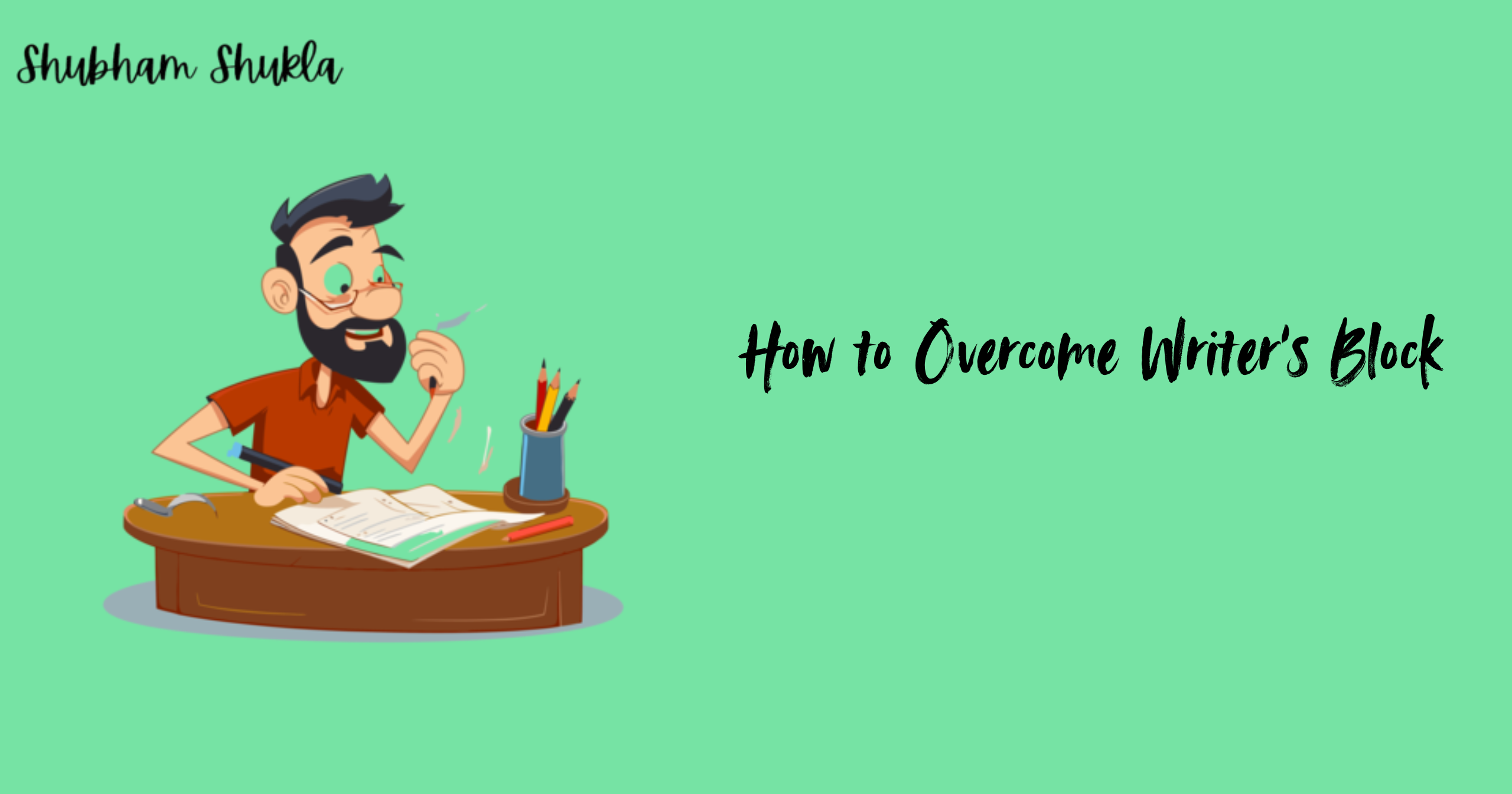Block while writing. It’s the persistent, annoying sensation of not being able to write because you’re in a creative rut. Whether we are novice writers, learners, or anyone who must put pen to paper (or fingers to keyboard), we have all been there. But do not worry! Not only is it possible to get over writer’s block, but it’s also a chance to develop as a writer. We’ll look at a tonne of different techniques in this article to help you unleash your creativity once more.
Understanding Writer Block
Common Causes of Writer’s Block
Writer’s block can stem from various sources, making it challenging for writers to produce new work. Common causes include stress and anxiety, which can hinder creativity and focus. Perfectionism often plays a role, as writers may fear their work won’t meet high standards.
Lack of inspiration or having too many distractions can also disrupt the writing process. Additionally, personal issues, such as relationship problems or health concerns, can consume mental energy, leaving little room for writing. Understanding these causes can help in developing strategies to overcome writer’s block and get back to writing.
Psychological Factors
Writer’s block is frequently caused by psychological issues. Anxiety and stress can impair one’s ability to think clearly, which might result in writer’s block.
Ideas might also be blocked by severe self-criticism or a fear of failing. Another challenge is perfectionism, which causes authors to continuously question their work. Personal matters like marital troubles or money concerns might sometimes divert attention.
Gaining insight into these psychological obstacles can assist in overcoming writer’s block and help writers rediscover their creative drive.
Environmental Factors
Writer’s block is often caused by environmental variables. Writing can be challenging when one’s attention is broken by distractions such as noise, clutter, or interruptions.
Productivity can also be hampered by an uncomfortable workstation, which can include disorganized desks, uncomfortable chairs, or inadequate lighting. Furthermore, a deficiency of environmental inspiration can inhibit creative thinking.
These environmental triggers of writer’s block can be reduced by setting up a peaceful, cozy, and well-organized writing area. This will improve the flow of ideas and make writing more pleasurable and effective.
Preparation Techniques
Establishing a Routine
Making writing a habit is essential to overcoming writer’s block. You can lessen the anxiety and reluctance that come with starting a writing project by creating a regular writing schedule that trains your brain to be ready to write at specified times.
Being consistent gives you momentum, which facilitates idea generation and concentration. Begin by determining the time of day that most suits your creative mood and stick to it. Establish a quiet area where you may write without interruptions.
This practice eventually becomes a second nature to you, increasing your total productivity and assisting you in overcoming writer’s block more skillfully.
Setting Realistic Goals
Writing blocks can be overcome by setting reasonable goals. To begin, divide your writing assignment into more digestible, smaller chunks. Set a target to finish one page, or simply a paragraph, rather than trying to write a whole chapter in one sitting.
This method makes the task seem less overwhelming and more doable. Furthermore, create and adhere to a regular writing schedule. Being consistent keeps you moving forward gradually and helps you gain momentum.
Reward minor accomplishments to maintain motivation. You may progressively get past writer’s block and keep your creative juices flowing by making realistic and doable objectives
Creating an Outline
One effective strategy for overcoming writer’s block is to draft an outline. It gives you a clear outline for your work and assists you in organizing your thoughts.
Make a list of the primary points you wish to discuss first. Next, divide these into more manageable chunks or bullet points. Writing becomes less daunting with this methodical technique because you may work on one piece at a time.
An outline helps you stay on task and guarantees that you don’t veer off subject, which makes it simpler to keep moving forward and finish your work quickly. Making an outline breaks down a difficult activity into smaller, more manageable pieces, which helps to overcome writer’s block.

Creative Exercises
Free Writing
Free writing is a powerful tool to overcome writer’s block. This exercise involves writing continuously for a set period, such as 10 or 15 minutes, without worrying about grammar, punctuation, or coherence.
The goal is to let your thoughts flow freely onto the page. Free writing helps clear mental blocks, stimulates creativity, and can lead to unexpected ideas.
By practicing free writing regularly, you train your mind to break through barriers that cause writer’s block, making it easier to start and sustain writing projects. This simple yet effective exercise can be a game-changer for writers struggling with creative blocks.
Writing Prompts
The best technique to overcome writer’s block is to use writing prompts. These writing exercises offer precise situations or concepts that can elicit ideas and stimulate original thought. For instance, you might be asked to depict a day in the life of a dragon or to envision what life would be like in the absence of electricity.
Your mind can be released from the burden of producing something flawless by concentrating on a straightforward, tangible activity, which can foster creativity. Consistently utilizing writing prompts will foster creative thinking in your brain and facilitate future overcomes of writer’s block.
Mind Mapping
The technique of “mind mapping” can be useful in overcoming writer’s block. It’s a creative practice where you scribble down ideas in a graphic format, usually beginning with a main topic or issue. You begin with a core idea or theme linked to your writing endeavor, then branch out into related thoughts and subtopics.
By drawing links between disparate ideas, this method aids in brain stimulation and the generation of fresh thinking. You can overcome mental obstacles and find inspiration to keep writing by graphically organizing your ideas. It’s an easy-to-use yet powerful technique to overcome writer’s block and ignite your imagination.
Mindfulness and Relaxation
Meditation Techniques
Although writer’s block might be annoying, it can be avoided by engaging in mindfulness exercises and relaxing methods like meditation. By focusing your attention and calming your mind, meditation can improve creativity and remove mental clutter.
One method is mindfulness meditation, in which you just notice your feelings and thoughts and let them come and go as they naturally arise.
Another technique is deep breathing meditation, which involves relaxing your body and mind by concentrating on your breath. You can overcome writer’s block and more readily access your creative flow by implementing these meditation techniques into your daily practice.
Breathing Exercises
It can be difficult to get past writer’s block, but mindfulness exercises and other relaxation methods like breathing exercises can be helpful. Taking deep, leisurely breaths is an exercise that helps to relax both your body and mind. Diaphragmatic breathing is a basic method in which you breathe deeply with your nose and feel your belly expand.
You then gently exhale through your mouth and feel your belly contract. This relieves the tension that frequently accompanies writer’s block by lowering heart rate and relaxing tense muscles. You can overcome writer’s block by adding these breathing exercises to your regimen to help you de-stress, become more focused, and find inspiration.
Taking Breaks
Although “Writer’s Block” might be annoying, taking pauses is a highly effective strategy to get past it. Relaxation and mindfulness are essential for increasing creativity. According to research, taking a break from your work enables your brain to rejuvenate and regain focus. Engage in mind-calming activities during breaks, including going for a walk, meditating, or deep breathing exercises. By lowering stress and clearing mental clutter, these techniques facilitate the generation of fresh ideas and the resolution of writer’s block. Thus, the next time you’re feeling stuck, don’t forget to allow yourself to take breaks and refuel your creative spark.
Technological Tools
Writing Software
In the realm of technological tools for writers, book writing tools stands out as a powerful ally against the dreaded foe known as writer’s block. These software programs, such as Scrivener, Grammarly, and Hemingway Editor, provide a range of features to help writers overcome creative hurdles.
From organizing thoughts and ideas to suggesting improvements in grammar and style, these tools offer invaluable assistance. With their user-friendly interfaces and intuitive functionalities, writing software enables writers to break through mental barriers and unleash their creativity.
By leveraging the capabilities of writing software, writers can effectively combat writer’s block and keep their creative juices flowing.
Productivity Apps
When it comes to overcoming writer’s block, technological solutions like productivity apps can be absolute game changers. These applications are meant to facilitate task organization, efficient time management, and increased creativity.
With capabilities like goal-setting tools, distraction detectors, and brainstorming tools, they can offer an organized method of writing by segmenting the process into doable chunks. When inspiration is scarce, a lot of productivity apps provide templates or prompts to help spark ideas.
By using these resources, authors may stay motivated, organized, and focused throughout writer’s block, which will ultimately increase their output and creativity.
Online Communities
For writers who are having writer’s block, online forums can be their saving grace. These online communities provide encouragement, ideas, and writing guidance from other authors. Talking to those who have been there before can inspire new ideas and bring new insights. Participating in writing-related forums or social media groups can assist in overcoming the dreaded writer’s block.
Social Interaction
Joining Writing Groups
One effective strategy for overcoming writer’s block is to join a writing club. These groups offer a helpful setting where authors may exchange concepts, get criticism, and find inspiration. Writing community interaction can help break down mental boundaries and inspire new ideas, which can boost productivity.
Attending Workshops
One excellent strategy for overcoming writer’s block is to attend workshops. These gatherings offer chances to network with other writers, exchange stories, and pick up new skills. Writer’s block can be overcome by participating in writing activities and holding group conversations to inspire and generate ideas.
Networking with Other Writers
To overcome writer’s block, writers must socialize with one another. Making connections with other authors offers invaluable inspiration, support, and encouragement. Writers can overcome creative blocks and rekindle their passion for writing by exchanging experiences, generating ideas, and getting feedback. Making connections with other authors promotes a sense of belonging and solidarity that helps reduce feelings of loneliness and increase self-assurance in conquering writer’s block.
Feedback and Editing
Seeking Constructive Criticism
One way to combat “Writer’s Block” is to look for constructive criticism. Professional Book Editing and feedback are essential for overcoming this obstacle. Accepting feedback from others can spark new ideas, point out areas that need work, and inspire innovation. Accept criticism as a tool for improvement, and you’ll see a growth in your writing.
Editing as a Creative Process
Retouching a rough diamond is similar to editing. Writers go through this creative process to polish their work and make it sparkle. Feedback is essential because it helps writers shape their thoughts. Rewriting previously written material, dividing it into digestible chunks, and letting creativity run wild are frequently the first steps in overcoming writer’s block.
Knowing When to Let Go
Knowing when to publish your work is essential when it comes to writing. Accepting criticism helps you improve your writing, but it’s also crucial to know when to give up. Writing block can be overcome by taking a step back, believing in your gut, and accepting that perfection is unachievable. Accept the process and speak freely.
Conclusion
A complex strategy that includes planning, creative exercises, mindfulness, and self-care is necessary to overcome writer’s block. Recall that all writers encounter roadblocks occasionally.
The secret is to not give up, maintain your optimism, and keep writing. You’ll be well on your way to overcoming writer’s block and releasing your creativity if you put these suggestions into practice.



